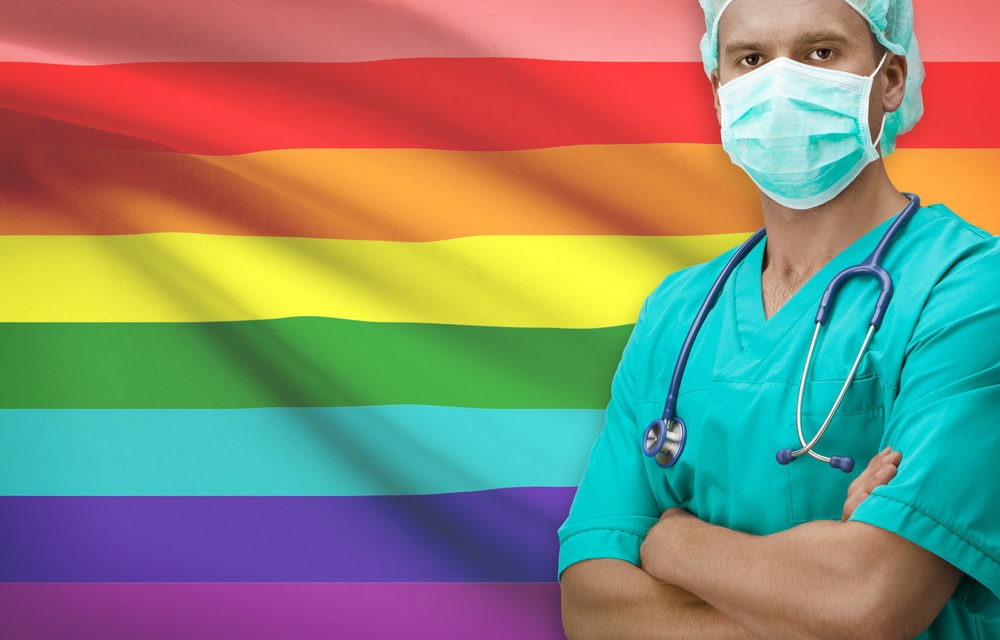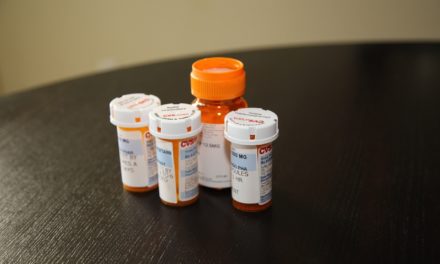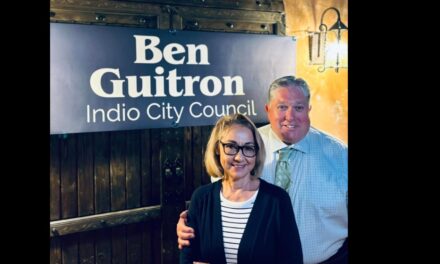PALM SPRINGS — For the fifth consecutive year, Desert Regional Medical Center has received the “LGBTQ Health Care Equality Leader” designation from the Human Rights Campaign Foundation (HRC).

Michele Finney
“It’s a sincere honor to receive the HRC’s LGBTQ Health Care Equality Leader designation for the fifth consecutive year,” Michele Finney, CEO of Desert Care Network, said in a prepared statement. “We strive to provide excellent care to all our patients and visitors each day, but receiving this recognition for the care we provide the LGBTQ community is a very special honor.”
The designation was awarded in the 12th edition of HRC’s Healthcare Equality Index (HEI), released Aug. 16. A record 680 health care facilities actively participated in the HEI 2019 survey, with HRC Foundation proactively researching key policies at 1000 additional non-participating hospitals. Of those included in the HEI, 406 earned a “LGBTQ health care Equality Leader” designation.
The 12th edition of the HEI assesses participants on four criteria: Non-Discrimination and Staff Training, Patient Services and Support, Employee Benefits and Policies, and Patient and Community Engagement.
In the 2019 report, an impressive 406 facilities earned HRC’s “LGBTQ Health Care Equality Leader” designation, receiving the maximum score in each section and earning an overall score of 100. Another 148 facilities earned the “Top Performer” designation for scoring from 80 to 95 points. With 81% of participating facilities scoring 80 points or more, health care facilities are demonstrating concretely that they are going beyond the basics when it comes to adopting policies and practices in LGBTQ care.
The remarkable progress reflected in the 2019 HEI includes:
- Over half of HEI participants now have written gender transition guidelines;
- 75% of hospitals surveyed offer trans-inclusive benefits — an impressive eight percentage point increase over last year, and numbers that bring them on par with their corporate counterparts, as measured by HRC’s 2019 CEI;
- A 35% increase in training hours recorded — clocking in at more than 94,000 hours of LGBTQ care training provided;
- A 60% increase in the number of HEI participants whose electronic health records capture a patient’s sexual orientation, and a 40% increase in the number of HEI participants whose electronic health records capture a patient’s gender identity.
Image Sources
- LGBTQ Healtcare: Shutterstock





![Enrolling Now, Rewarding Careers Ahead [Sponsored]](https://ukenreport.com/wp-content/uploads/2024/04/COD_heroes_1-1385-2-440x264.jpg)

